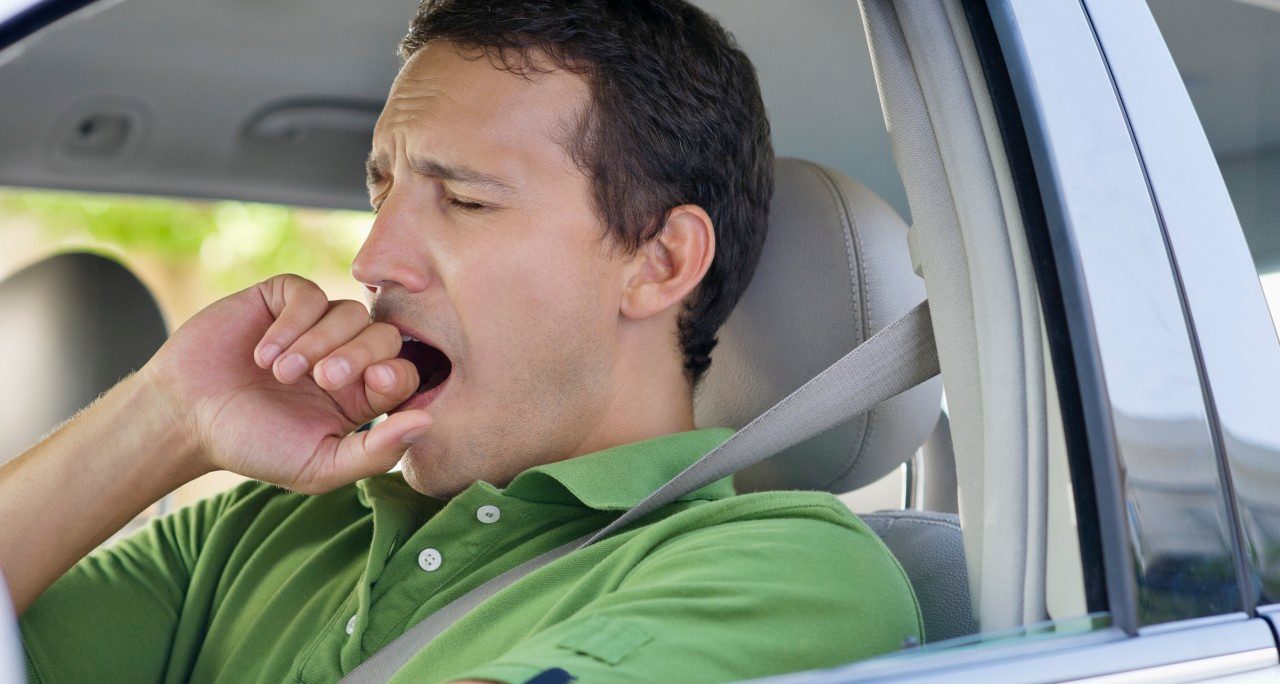Extra Weight and Depression Can Cause Daytime Sleepiness

It’s not just lack of sleep that has you yawning during the day. Those extra pounds take a toll, even if you treat sleep apnea. Here's what you should know.
Do you chug several cups of coffee in the morning to wake up but still yawn and feel drowsy during the day? You aren’t alone. You may need to lose weight or treat other health problems.
Excessive daytime sleepiness (EDS) is a common health problem that can have serious work and safety consequences. Obviously, you can’t do your best on the job if you are groggy and longing for a nap. And you may be putting yourself and others in harm’s way driving to and from work. Drowsy drivers in the U.S. may be responsible for some 6,400 fatal crashes each year.
Sufferers of daytime sleepiness are often prescribed sleeping pills and advised to spend more time in bed. But you may need more help. Everyone needs to maintain good sleep hygiene (getting regular sleep and avoiding electronics before bedtime). If that doesn’t work, you’ll need to dig deeper.
YOU MIGHT ALSO LIKE: Sleeping Earlier Could Improve Your Mood
Sleep apnea
If you’re heavy, regularly sleepy during the day, and snore loudly, doctors are likely to suggest getting checked for sleep apnea, a disorder in which your sleep is interrupted when you struggle to breathe.
Should you be diagnosed with sleep apnea, you’ll be offered a CPAP (continuous positive airway pressure) machine to use during the night to help prevent those interruptions. But that the device may not solve your daytime sleepiness, some research suggests.
How weight affect sleeps
Weight alone can be the problem. In a study of nearly 1,400 volunteers with daytime sleepiness, people who were overweight suffered the most sleepiness and fatigue during the day, no matter how much they slept at night. When researchers checked the volunteers again seven and a half years later, those who had lost weight also lost their daytime sleepiness.
The study suggests that overweight people feel inappropriately tired because of low-grade chronic inflammation. Fat cells, especially those located around the abdomen, release immune compounds called cytokines that can trigger sleepiness.
How your mental health affects your sleep
The study also revealed that depression often led to sleepiness. People who were depressed had more difficulty falling asleep and staying asleep all night, causing chronic daytime drowsiness.
"People with depression typically ruminate, they have difficulty shutting their minds off, and they are more likely to have elevated stress hormones," said co-author Julio Fernandez-Mendoza, a clinical psychologist and sleep care researcher and clinician at the sleep medicine training program at Penn State in Hummelstown, Pa.
What you can do
In a small group, EDS may be traced to a physiologic sleepiness disorder of the central nervous system. Even though these people fall asleep faster and sleep longer at night than most, they are still groggy in the daytime.
Talk to your doctor about medication. Modafinil (Provigil) is commonly prescribed to combat residual EDS. Two newer drugs, solriamfetol (Sunosi) and pitolisant (Wakik), are now available.
Losing weight may seem impossible, in part because you’re chronically tired, which is linked to piling on the pounds. But, if you can get more rest, you’ll be able to lose weight more easily and start a positive cycle.
Updated:
November 08, 2022
Reviewed By:
Janet O’Dell, RN